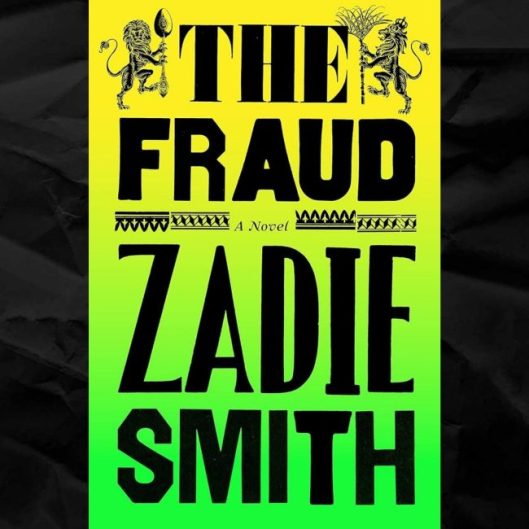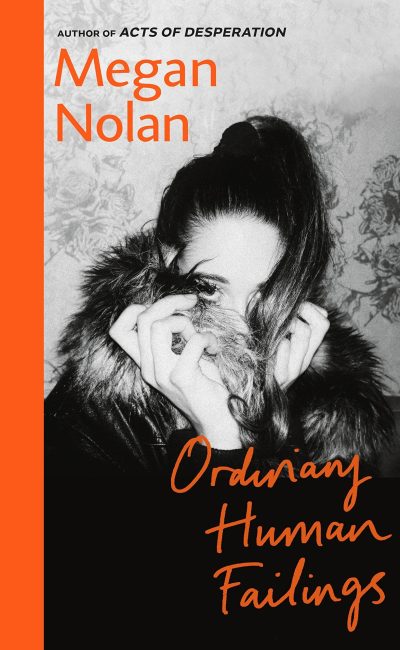Tags
A Northern Wind, A Year in Books, Alba de Céspedes, Andy Warhol, Brigitte Reimann, Call and Response, Cold Nights of Childhood, David Kynaston, Emma Cline, Forbidden Notebook, George Orwell, Germany, Gothataone Moeng, Italy, Jean Stafford, Joaquina Ballard Howles, Julia, Kate Grenville, Last House Before the Mountain, Lauren Groff, Leïla Slimani, Megan Nolan, Monika Helfer, Nicole Flattery, No More Giants, Nothing Special, Ordinary Human Failings, Poland, Restless Dolly Maunder, Sandra Newman, Seventy Times Seven, Short Stories, Siblings, Susanna Moore, Tezer Özlü, The Fraud, The Guest, The Lost Wife, The Mountain Lion, The Peasants, The Vaster Wilds, True Crime, Turkey, Watch Us Dance, William Harrison Ainsworth, Władysław Reymont, Zadie Smith

Set in her beloved West London, Zadie Smith’s The Fraud focuses on two forgotten figures: William Harrison Ainsworth, once a bestselling author – and a doorway into literary celebrity, Victorian-style; and Andrew Bogle, a formerly enslaved Jamaican and chief witness in the trial of the Tichborne Claimant. Caught in the whirl of notoriety, their fates are tracked by a free-thinking widow whose acidic commentary tests the bounds of white liberalism.

Irish writer Nicole Flattery follows her debut short story collection (Show Them a Good Time) with a novel, Nothing Special – ironically titled, or so it may seem. Set in 1960s New York, Flattery follows a disaffected teenager leaving high school behind for life as a worker bee in Andy Warhol’s Factory. Fulfilling her early promise – and then some – Flattery delights with her artful tale of a naive misfit swapping one clique for another.

Another of Ireland’s new wave of young writers, Megan Nolan explores the fragility of family bonds among London’s Irish community in her second novel, Ordinary Human Failings.

The second novel in Leïla Slimani’s Moroccan trilogy, Watch Us Dance shows colonial tensions giving way to sweeping change as scattered family members navigate the nation’s brittle independence.

With her debut collection of short stories, Call and Response, Gothataone Moeng gives voice to women’s lives in Botswana.

Susanna Moore’s The Lost Wife takes us back to the Old West, as a woman escapes an abusive partner and finds respectability in marriage to a doctor. However, her newfound stability is shattered during a Sioux uprising, when she begins to doubt her capacity for reinvention.

In The Vaster Wilds, Lauren Groff delves even further into America’s past, as a young girl flees an early English settlement to wander alone in a strange land. Her journey is conveyed in lyrical prose.

A mother struggles to raise her children after her husband enlists in the Austrian army during World War I. Monika Helfer’s Last House Before the Mountain shows a woman left at the mercy of small-minded neighbours and rapacious officials.

First published in 1944, Jean Stafford’s The Mountain Lion was reissued by Faber this year. The novel focuses on two precocious siblings sent to live with a disinterested uncle on a remote Colorado farm.

Joaquina Ballard Howles was living in England when she wrote No More Giants (1966), a coming-of-age novel inspired by her memories of growing up on a Nevada ranch. Little understood by British critics at the time, it has now been rescued by the Recovered Books imprint from Boiler House Press at UEA.
 Among the other novels I enjoyed this year: in Emma Cline’s The Guest, a lonesome grifter runs wild in the Hamptons; Julia is Sandra Newman’s feminist twist on George Orwell’s 1984; and with Restless Dolly Maunder, Kate Grenville revisits family history to create a fictional portrait of Australian womanhood on the cusp of modernity.
Among the other novels I enjoyed this year: in Emma Cline’s The Guest, a lonesome grifter runs wild in the Hamptons; Julia is Sandra Newman’s feminist twist on George Orwell’s 1984; and with Restless Dolly Maunder, Kate Grenville revisits family history to create a fictional portrait of Australian womanhood on the cusp of modernity.
 A few more reissues: first published in 1904, Władysław Reymont’s epic saga, The Peasants – recently adapted for the screen – follows a turbulent year in the life of a Polish village; and Alba de Céspedes’ Forbidden Notebook (1951) imagines the secret diary of a bourgeois Italian wife.
A few more reissues: first published in 1904, Władysław Reymont’s epic saga, The Peasants – recently adapted for the screen – follows a turbulent year in the life of a Polish village; and Alba de Céspedes’ Forbidden Notebook (1951) imagines the secret diary of a bourgeois Italian wife.

Brigitte Reimann’s Siblings (1963) is a rare glimpse into life behind the Berlin Wall; and Tezer Özlü’s Cold Nights of Childhood (1980) reveals the author’s experience of state brutality as a young Turkish woman.

And finally, two non-fiction highlights: Alex Mar’s Seventy Times Seven focuses on a shocking crime and its aftermath, encompassing race, class and the power of forgiveness; and A Northern Wind, the latest volume in David Kynaston’s definitive history of post-war Britain, looks back to the dawn of the Sixties.

You must be logged in to post a comment.